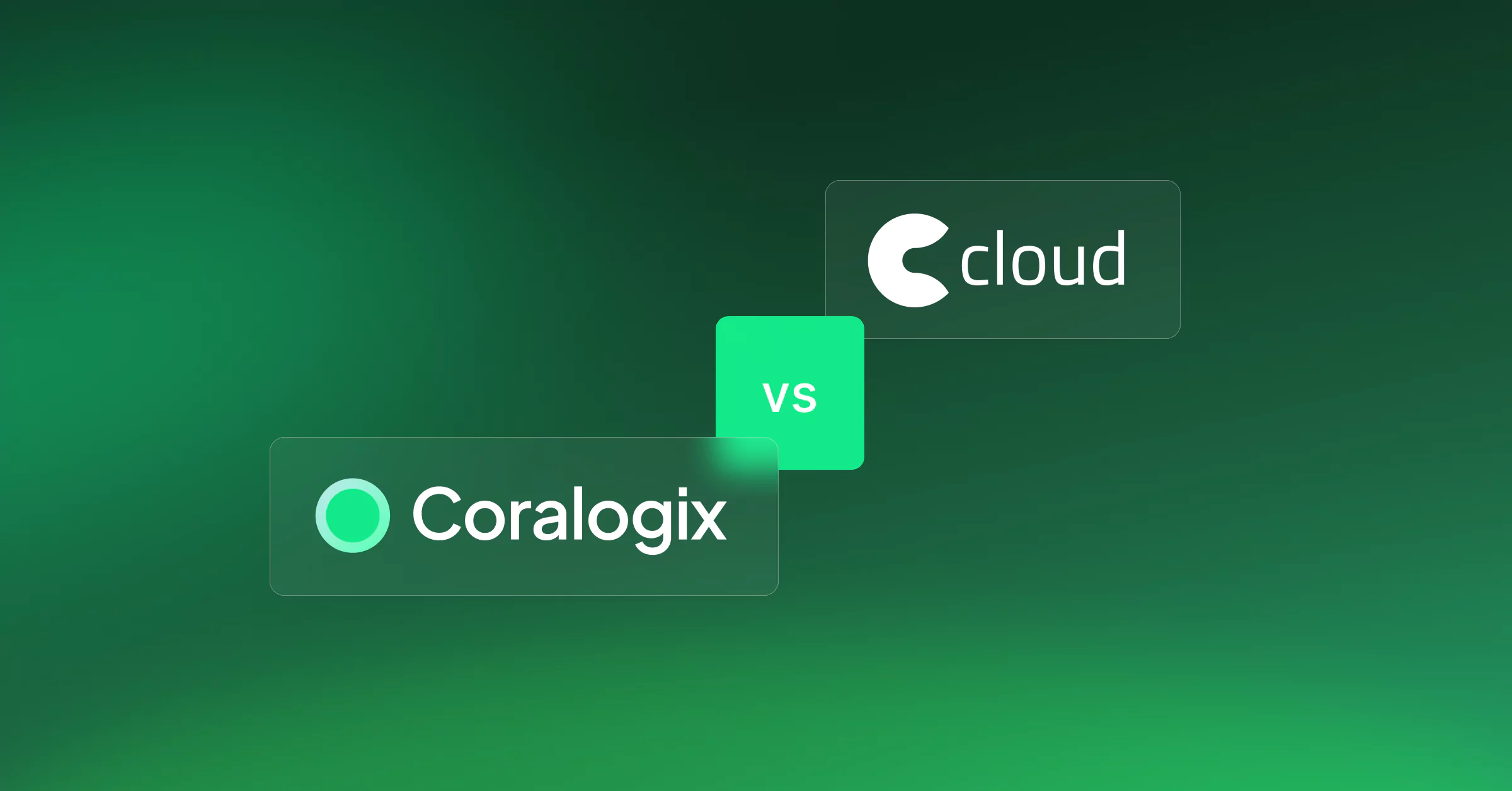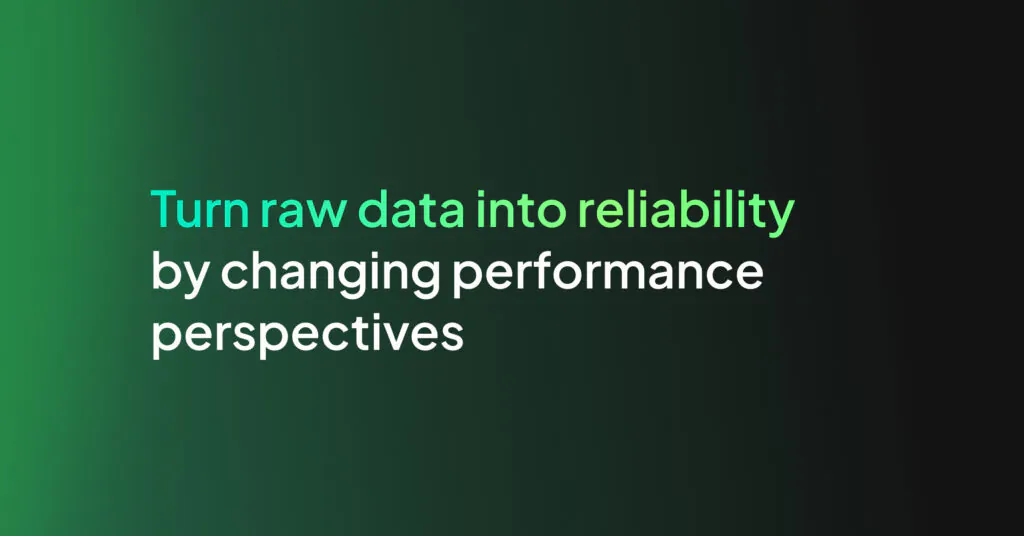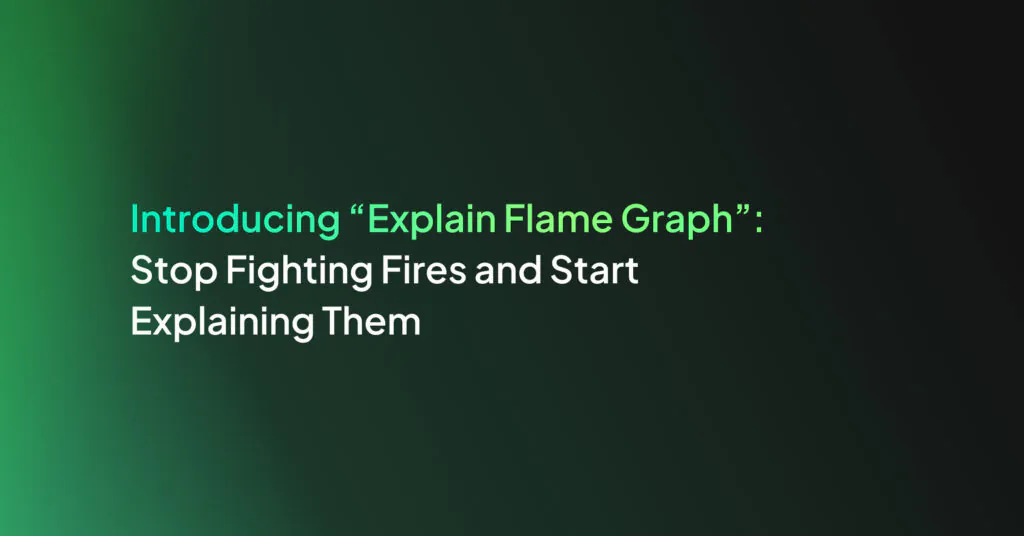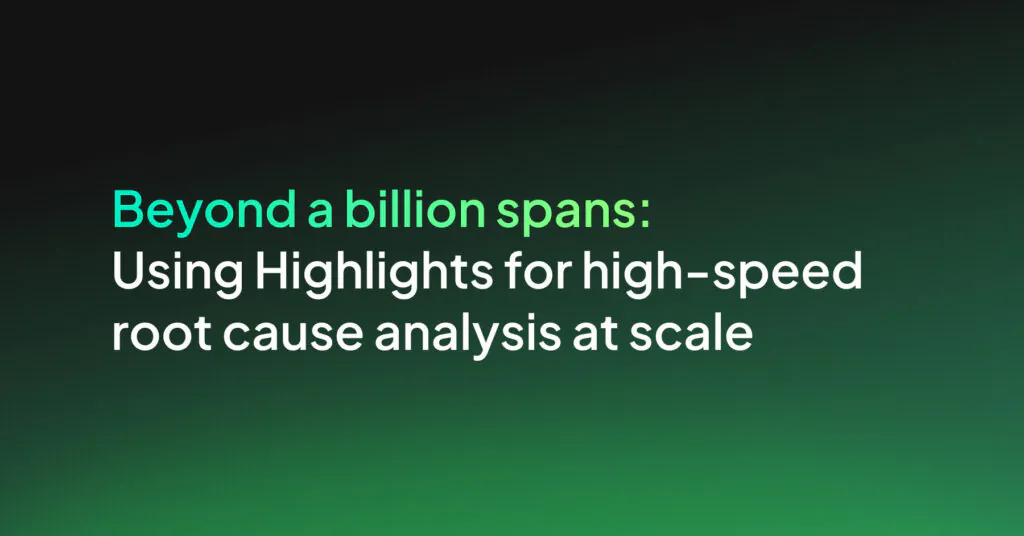Elastic Cloud vs Coralogix: Support, Pricing, Features & More

With various open source platforms on the market, engineers have to make smart and cost-effective choices for their teams in order to scale. Elastic Cloud, and its flagship product Elasticsearch, are one of several options available, but how do they compare to a full-stack observability platform like Coralogix?
This article will provide a complete breakdown between Coralogix and Elastic Cloud, from essential industry features, like logs, metrics and traces, to pricing models and support services. When it comes to ensuring observability for modern systems, you need to know which platform suits your data needs.
SaaS vs PaaS
Elastic Cloud is a Platform-as-a-Service (PaaS) solution that provides customers a cloud platform which they oversee themselves.
Coralogix, on the other hand, is a fully managed SaaS solution that allows DevOp teams all the tools they need for better data management and software development. Coralogix also runs architecture in a more efficient manner, driving internal cost savings down and resulting in a lower price point. The time to value with Coralogix is much less overall.
To learn more, read our full-stack observability guide.
Logs, metrics, traces and alerting
Coralogix and Elastic Cloud support ingesting logs, metrics, and traces. While these three data types are common across most SaaS observability platforms, Coralogix uses a unique data streaming analytics pipeline called Streama to analyze data in real-time and provide long-term trend analysis without indexing.
Data correlation and usability
While both Coralogix and Elastic Cloud ingest logs, metrics, and traces from many different sources, Coralogix excels at bringing all this data together in a single, cohesive journey that allows users to sail between data types seamlessly.
Coralogix Flow Alerts
Coralogix alerting has unique features like Coralogix Flow Alerts, which allow users to orchestrate their logs, metrics, traces, and security data into a single alert that tracks multiple events over time. Using Flow Alerts, customers can track the change in their system.
Machine Learning capabilities
Both Coralogix and Elastic Cloud utilize machine learning for alarms, and for automatic correlation between events. For example, if an alarm triggers because of a flow anomaly, the Coralogix platform will automatically show other anomalies that occurred in the same timeframe.
Coralogix Loggregation
Coralogix Loggregation is another unique feature in the Coralogix toolkit. Loggregation will automatically cluster similar logs together, to form a “template”. This functionality allows users to understand which logs are noisiest and accounting for the most errors and more.
Essentially, the Loggeration guides customers through troubleshooting. While Elastic Cloud offers some log clustering functionality (where all data has to be indexed first), Coralogix lets you analyze your data free from indexing.
Archiving and Archive Query
There is no bigger difference in this comparison of Coralogix vs Elastic Cloud than in archiving. For Elastic customers, archiving in a remote location, such as S3, is limited to enterprise customers. As a result, most users ingest a lot of data, and subsequently spend a larger amount of money.
All Coralogix customers, regardless of ingestion amounts, can remotely archive their data into S3. Since Coralogix does not tier its solution, customers who ingest their data into the platform gain immediate access to every single feature.
Furthermore, with the Coralogix platform, you can perform remote queries in seconds on archived, unindexed data. Meanwhile, with Elastic, for data to be accessible, it needs to be indexed, resulting in huge implication costs. Finally, Coralogix enables infinite retention with unlimited access, with no cost per query, through its archive query capability.
Cost optimizations
- Coralogix: Coralogix users start by indexing the majority of their data, but over time, they tend to transfer more data to the archive. This is because it can be queried in seconds, at no additional cost.
This functionality means customers can store the majority of their data in S3, and pay at most $0.023 / GB for storage. Coupled with the Compliance ingest costs in Coralogix, $0.17 / GB, the GB cost for ingest and storage is $0.193 / GB for the first month and $0.023/GB every month after that. Customers can cut costs by between 40% and 70%.
Compared to Elastic Cloud, Coralogix cost optimization rests entirely with the customer. Cost optimization with an Elastic deployment may require in-house teams that negate much of the cost optimization possible.
- Elastic Cloud: For Elastic customers, instance types and computation power are just a few features that matter. Most are trading off cost for performance.
Coralogix doesn’t charge by cloud resources, but by ingestion volume. More than that, Coralogix allows customers to assign use cases to traces and logs, which drive instant cost savings via the TCO Optimizer. These decisions are flexible and reversible, and entirely risk free.
Pricing model
The Coralogix pricing model is based entirely on GB ingested with no solution tiering or extra costs for features, making it easy for new customers to predict their costs. In comparison, the Elastic offering is based on compute capacity. Translating from data volumes to computing is difficult because the correct cluster size would be impacted by a number of other complex variables, such as data tiering, query volumes, high availability and much more.
Customer support
While Elastic Cloud offers 24/7 support to its premium customers, other customers receive lesser coverage. Moreover, Elastic only offers rapid support, or roughly a 30-minute “target response time” for enterprise customers. This is not an SLA, so their documentation does not describe it as such.
Coralogix offers all customers a median 30-second response time, an SLA measured in minutes, and 24/7 support. Coralogix also offers a median resolution time of 43 minutes. Even with the most complete support that Elastic offers, they are acknowledging issues only 10 minutes faster than Coralogix is resolving them.
Out-of-the-box dashboards
Elastic Cloud lacks a built-in dashboard for well-known technology, such as Kubernetes and Serverless. Elastic customers have to manually create these dashboards from scratch, often needing to be reworked since these dashboards are regularly shared in open source communities.
Coralogix has built dashboards for Kubernetes Monitoring, Serverless monitoring and more, while also supporting open source dashboarding solutions like Grafana. Coralogix also provides a custom dashboarding solution for Coralogix users. The platform’s reuse of open source dashboards, like JSON definitions, and the time-to-value of premade dashboards makes its offerings the best of both worlds.




